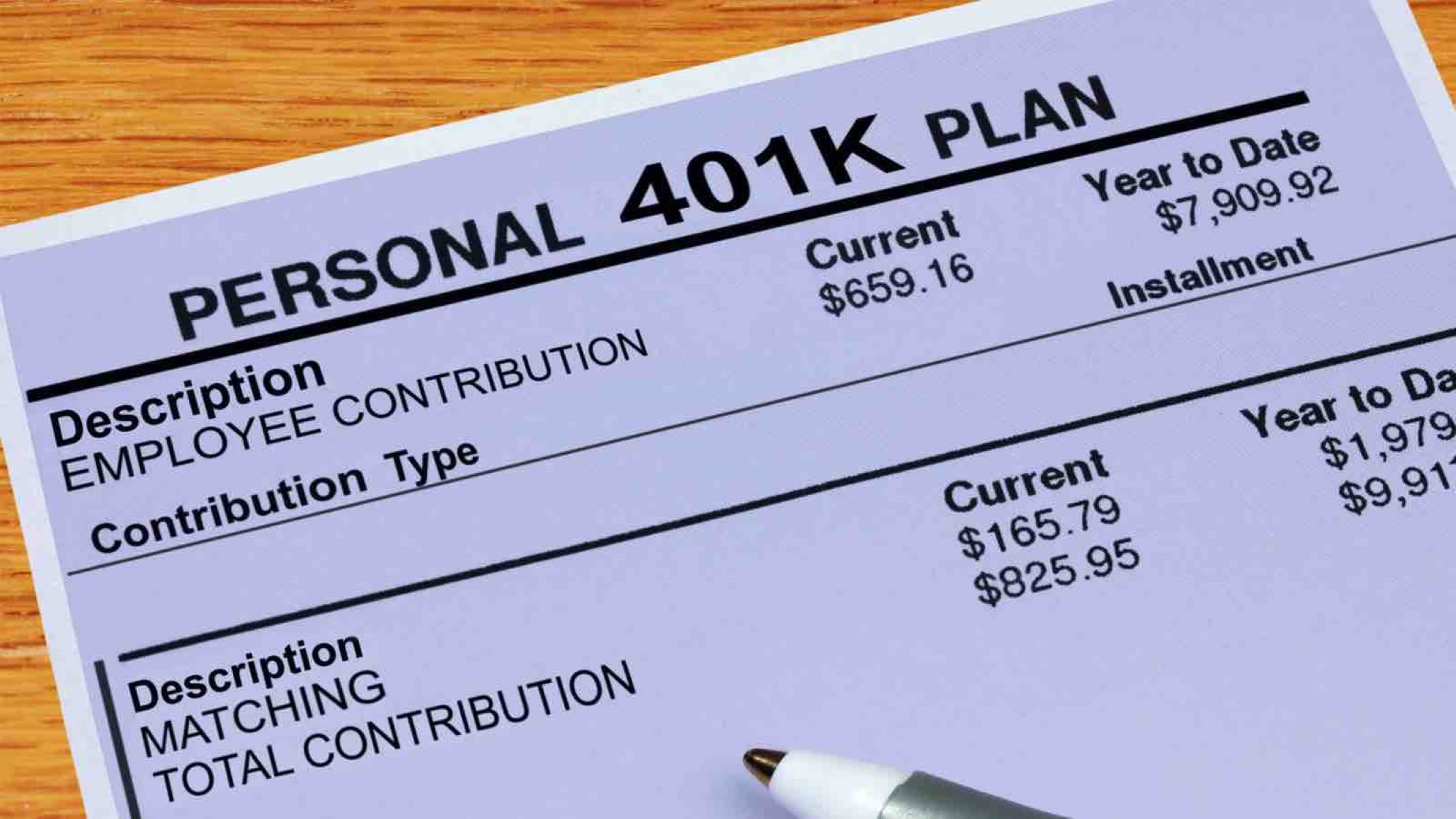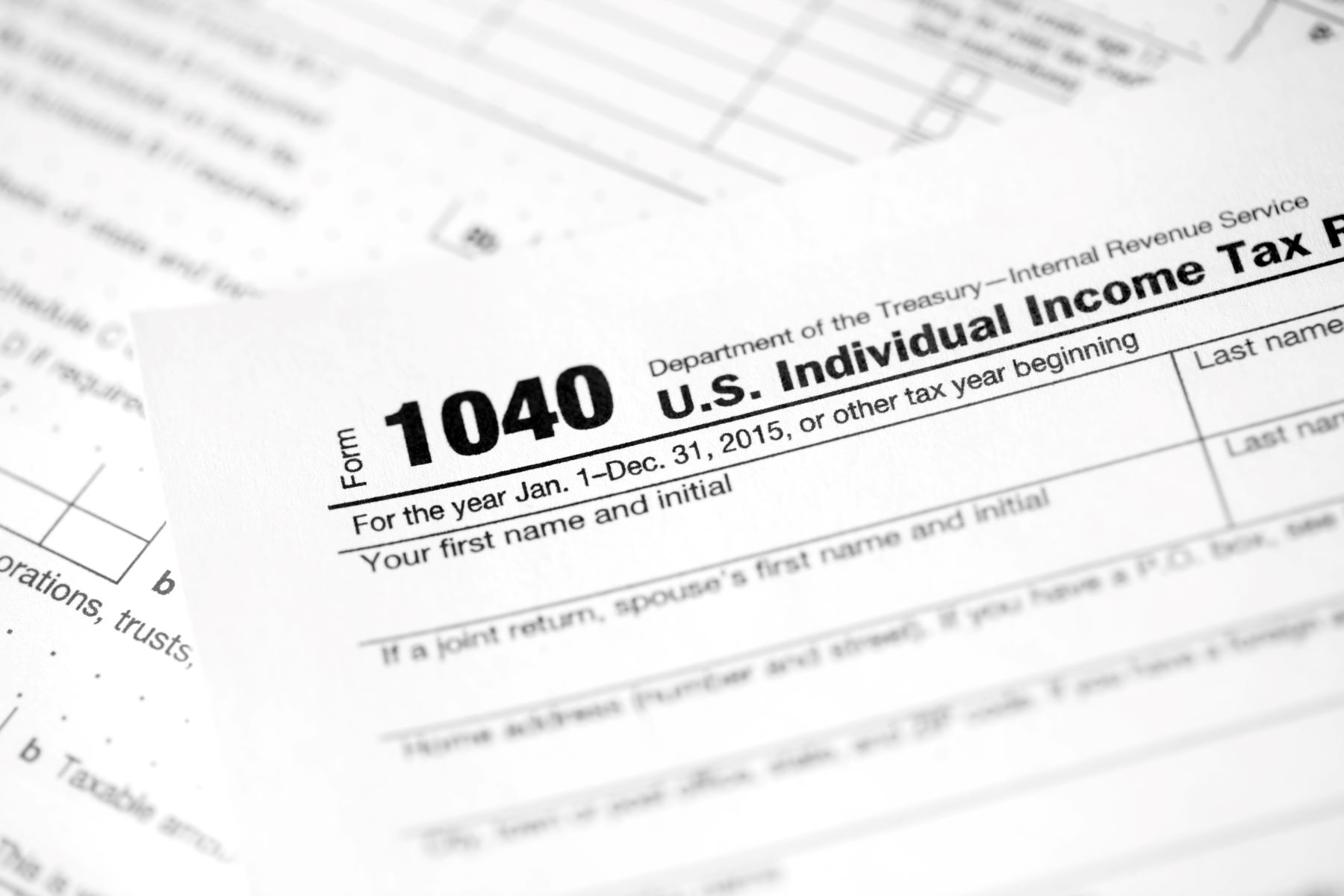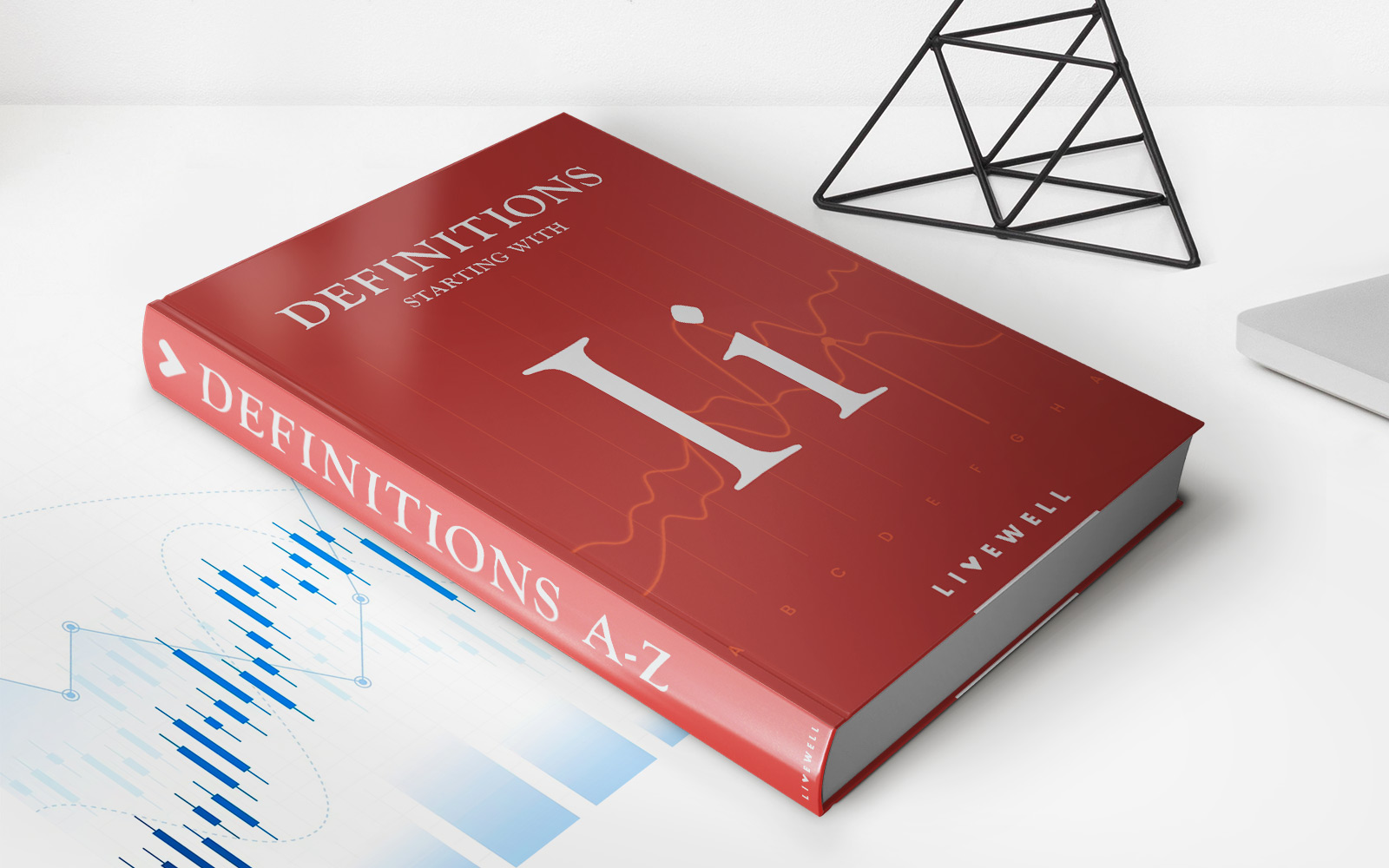

Finance
How To Stop Contributing To 401K
Published: October 18, 2023
Learn how to improve your financial future by finding out ways to stop contributing to your 401K. Take control of your finances and make smarter financial decisions.
(Many of the links in this article redirect to a specific reviewed product. Your purchase of these products through affiliate links helps to generate commission for LiveWell, at no extra cost. Learn more)
Table of Contents
Introduction
401(k) contributions are a popular and effective way to save for retirement. Consistently contributing to your 401(k) can provide a significant financial cushion in your golden years. However, there may be situations where you need to consider stopping or pausing your contributions temporarily.
Before diving into why you might want to stop contributing to your 401(k), it’s important to understand the basics. A 401(k) is a retirement savings account provided by your employer, allowing you to contribute a portion of your pre-tax income towards retirement. Many employers even match a percentage of your contributions, providing an additional incentive to save.
Now, let’s explore the reasons why you might want to halt your 401(k) contributions. Life can throw unexpected curveballs, and financial priorities may shift over time. It’s essential to assess your current situation and make informed decisions about how to allocate your resources.
Keep in mind that stopping your 401(k) contributions should be a deliberate and carefully considered choice. It’s a decision that can have long-term implications for your retirement savings. Before taking any action, evaluate the pros and cons, and explore alternative options for saving for your future.
So, whether you’re facing financial hardship, seeking more immediate liquidity, or exploring other investment opportunities, this article will guide you through the process of assessing your situation and making an informed decision about your 401(k) contributions.
Understanding 401(k) Contributions
Before delving into the reasons why you might consider stopping your 401(k) contributions, it’s crucial to have a solid understanding of how these contributions work and their long-term benefits.
As mentioned earlier, a 401(k) is a retirement savings account offered by many employers. It allows eligible employees to contribute a portion of their pre-tax income towards their retirement. The contributions are deducted directly from your paycheck, making it a convenient and automated way to save.
One of the primary advantages of a 401(k) is the potential for employer matching. Many companies offer a matching program, where they contribute a certain percentage of your contributions up to a specified limit. This essentially provides you with free money, helping to accelerate your savings.
Another advantage of 401(k) contributions is the tax benefits. Traditional 401(k) contributions are made with pre-tax dollars, meaning your taxable income is reduced by the amount you contribute. This can result in immediate tax savings, as you won’t be taxed on that portion of your income until you withdraw it during retirement.
Additionally, the funds in your 401(k) can grow tax-deferred, meaning you won’t pay taxes on any investment gains until you start withdrawing the funds during retirement. This allows your money to potentially compound over time, maximizing your savings.
It’s important to note that there are limits to how much you can contribute to your 401(k) each year. The IRS sets annual contribution limits, which can vary depending on your age and other factors.
Now that we have a solid understanding of how 401(k) contributions work, let’s explore the various reasons why you might consider stopping your contributions and how to assess your financial situation to make an informed decision.
Reasons for Stopping Contributions
While contributing to your 401(k) is generally a wise financial move, there are valid reasons why you might consider stopping or pausing your contributions. Let’s explore some common scenarios where it might be appropriate to reassess your 401(k) contributions:
- Financial hardship: If you’re facing a period of financial difficulty, such as a job loss, medical expenses, or unexpected major expenses, it may be necessary to temporarily halt or reduce your 401(k) contributions. Prioritizing immediate financial needs and building an emergency fund could take precedence in these situations.
- High-interest debt: If you have high-interest debt, such as credit card debt, it may be more advantageous to redirect funds toward paying off these debts. Since the interest charged on debt is often higher than the potential returns from your 401(k) investments, addressing these debts can provide significant long-term savings.
- Reevaluating retirement goals: Over time, your retirement goals may change. You might decide to retire earlier than anticipated or pursue a different post-retirement lifestyle. When this happens, it’s important to reassess your financial plan and determine whether adjusting your 401(k) contributions aligns with your revised retirement objectives.
- Exploring other investment opportunities: While 401(k) contributions offer tax advantages and employer matching, there may be other investment opportunities with higher potential returns. If you have done your research and identified other investment vehicles that align better with your financial goals and risk tolerance, it might be worth considering reallocating some of your contribution funds accordingly.
It’s important to note that stopping or reducing your 401(k) contributions should not be taken lightly. Retirement savings should always remain a priority, and pausing your contributions should only be considered as a temporary solution. Once your financial situation stabilizes, it’s crucial to resume contributions and continue saving for your future.
Now, let’s move on to the next step: assessing your financial situation to determine the appropriate course of action regarding your 401(k) contributions.
Assessing Your Financial Situation
Before making any decisions about stopping your 401(k) contributions, it’s essential to thoroughly evaluate your current financial situation. Taking the time to assess your income, expenses, and financial goals will help you make informed decisions about the next steps to take.
Here are some key aspects to consider when assessing your financial situation:
- Income stability: Evaluate the stability of your income. If your job is in jeopardy or if you’re experiencing a significant decrease in income, it may be wise to reduce your 401(k) contributions temporarily to free up more cash flow.
- Emergency fund: Take stock of your emergency fund. An emergency fund provides a financial safety net for unexpected expenses or income disruptions. If your emergency fund is insufficient or non-existent, it might be advantageous to focus on building that up before resuming or increasing your 401(k) contributions.
- Existing debts: Examine your current debt situation. If you have high-interest debt, it may be more beneficial to allocate funds towards paying off those debts instead of contributing to your 401(k). High-interest debts can hinder your overall financial health and it’s often more advantageous to tackle those first before prioritizing retirement savings.
- Short-term financial goals: Consider any short-term financial goals you may have, such as saving for a down payment on a house, planning a wedding, or funding a child’s education. If these goals are a priority for you, it might be necessary to temporarily redirect some of your 401(k) contributions towards these savings.
- Long-term financial goals: Evaluate your long-term financial goals, especially related to your retirement plans. Assess whether your current 401(k) contributions align with those goals. If you have adjusted your retirement timeline or have other investment opportunities that may yield higher returns, adjusting your contributions accordingly might be a prudent decision.
By considering these factors, you can gain a clearer understanding of your financial situation and make informed decisions about your 401(k) contributions. Remember, it’s crucial to strike a balance between meeting your immediate financial needs and maintaining a long-term focus on retirement savings.
Next, let’s weigh the pros and cons of stopping your 401(k) contributions to ensure you make a well-rounded decision.
Weighing the Pros and Cons
When considering whether to stop your 401(k) contributions, it’s essential to carefully weigh the pros and cons to make an informed decision. By evaluating the potential benefits and drawbacks, you can determine the best course of action for your financial situation.
Here are some pros and cons to consider:
Pros of Stopping Contributions:
- Immediate financial relief: By halting your 401(k) contributions, you can free up more cash flow in the short term, which can be helpful during times of financial hardship or when facing other financial obligations.
- Flexibility with funds: Pausing your contributions provides flexibility in how you allocate your money. You can use the funds for other financial priorities, such as paying off high-interest debt or building an emergency fund.
- Opportunity for alternative investments: Redirecting your contribution funds towards other investment opportunities may offer potentially higher returns or align better with your financial goals.
Cons of Stopping Contributions:
- Missed employer match: If your employer offers matching contributions, stopping your own contributions means you will miss out on the opportunity to receive free money from your employer, which can significantly boost your long-term savings.
- Loss of tax advantages: By reducing or halting your 401(k) contributions, you’ll miss out on the immediate tax benefits of contributing pre-tax dollars. Keep in mind that this also means you won’t enjoy the tax-deferred growth on those funds over time.
- Delayed retirement savings: Pausing contributions means you will temporarily halt the growth of your retirement savings, potentially delaying your progress towards your retirement goals.
When considering the pros and cons, it’s important to remember that stopping your 401(k) contributions should be a temporary measure. While there may be valid reasons to pause or reduce contributions, it’s crucial to resume saving for your retirement as soon as your financial situation allows.
Now that you’ve weighed the pros and cons, let’s explore alternative retirement saving options you may consider if you choose to stop or reduce your 401(k) contributions.
Alternative Retirement Saving Options
If you have chosen to pause or reduce your 401(k) contributions, it’s important to explore alternative retirement saving options to ensure you continue building your financial future. While the 401(k) is a popular and valuable retirement savings vehicle, there are other avenues to consider. Here are some alternative options:
- Individual Retirement Accounts (IRAs): IRAs offer another tax-advantaged way to save for retirement. Traditional IRAs allow you to contribute pre-tax dollars (similar to a 401(k)), while Roth IRAs accept after-tax contributions with the potential for tax-free withdrawals in retirement. Consider opening an IRA and contributing to it regularly to continue growing your retirement savings.
- Health Savings Accounts (HSAs): If you have a high-deductible health insurance plan, you may be eligible for an HSA. It offers a triple tax advantage: pre-tax contributions, tax-free growth, and tax-free withdrawals for qualified medical expenses. HSAs can be a valuable resource for funding healthcare costs both before and during retirement.
- Taxable Investment Accounts: Consider investing in taxable brokerage accounts, such as stocks, bonds, mutual funds, or exchange-traded funds (ETFs). While these accounts do not offer the same tax advantages as retirement accounts, they provide flexibility and potential for growth. Consult with a financial advisor to determine the right investment strategy for your risk tolerance and long-term goals.
- Simplified Employee Pension (SEP) IRA or Solo 401(k): If you’re self-employed, you may be eligible for a SEP IRA or Solo 401(k). These retirement plans allow you to save for your future while potentially enjoying higher contribution limits, similar to a traditional 401(k). Consider these options if you are self-employed or operate a small business.
When exploring these alternative retirement saving options, be sure to consider the specific features, contribution limits, and tax implications of each. It’s also advisable to consult with a financial advisor or retirement planning professional who can provide personalized guidance tailored to your unique circumstances.
Now that you have a better understanding of alternative options, let’s discuss the importance of seeking professional financial advice before making any significant decisions regarding your retirement savings.
Seeking Professional Financial Advice
When it comes to making decisions about your retirement savings, seeking professional financial advice is invaluable. A qualified financial advisor can provide expertise, guidance, and personalized recommendations based on your specific financial situation and goals.
Here’s why seeking professional financial advice is important:
- Expertise: Financial advisors have in-depth knowledge and expertise in retirement planning, investment strategies, and tax considerations. They can analyze your financial situation holistically and help you make informed decisions aligned with your long-term objectives.
- Individualized Advice: Every person’s financial situation is unique. A financial advisor can assess your specific circumstances, including income, savings, debt, and goals, and develop a customized retirement plan tailored to your needs. They can help you evaluate the impact of pausing or reducing your 401(k) contributions and explore alternative savings options.
- Market Insights: Financial advisors stay up-to-date with market trends, economic conditions, and investment opportunities. They can guide you in making sound investment decisions and help you navigate potential market fluctuations to maximize your retirement savings.
- Tax Efficiency: Financial advisors can help you optimize your retirement savings from a tax perspective. They can assist in determining the most tax-efficient strategies, such as utilizing the right retirement accounts and taking advantage of available tax deductions or credits.
- Long-Term Planning: Retirement planning is a long-term endeavor. Financial advisors can help you develop a comprehensive retirement plan that takes into account your current financial situation, future goals, and potential life events. They can also assist in regular reviews and adjustments as your circumstances change.
When selecting a financial advisor, consider their credentials, experience, and reputation. Look for professionals with certifications such as Certified Financial Planner (CFP) or Chartered Financial Analyst (CFA) to ensure they have met rigorous standards of competence and ethics.
Remember that financial advisors work for you, and it’s important to establish open communication and feel comfortable discussing your financial goals and concerns. Be sure to clarify their fee structure and understand how they are compensated for their services.
In summary, seeking professional financial advice provides you with expert guidance, personalized strategies, and peace of mind as you navigate your retirement savings decisions. They can be your trusted partner in building a secure and prosperous financial future.
Now, let’s conclude our discussion on stopping contributions to your 401(k) and summarize the key takeaways.
Conclusion
Deciding whether to stop contributing to your 401(k) is a significant financial decision that requires careful consideration. While a 401(k) is a valuable retirement savings tool, there are valid reasons why you may need to pause or reduce your contributions temporarily. However, it’s essential to understand the potential implications and explore alternative options to continue building your retirement nest egg.
First and foremost, it’s crucial to assess your financial situation, considering factors such as income stability, existing debts, and short-term and long-term financial goals. By understanding your current financial landscape, you can make informed decisions about how to best allocate your resources.
Weighing the pros and cons of stopping contributions is essential in determining the potential benefits and drawbacks. While pausing contributions may provide immediate financial relief and flexibility, it can also mean missing out on employer matches and tax advantages, and delaying the growth of your retirement savings.
If you decide to stop or reduce your 401(k) contributions, explore alternative retirement saving options such as IRAs, HSAs, taxable investment accounts, or specialized retirement plans for self-employed individuals. These alternatives can help you continue building your future financial security.
Seeking professional financial advice is highly recommended when making decisions about your retirement savings. Financial advisors have the expertise to assess your situation, provide personalized advice, and guide you towards a solid retirement plan that aligns with your goals and objectives.
In conclusion, carefully evaluate your financial situation, weigh the pros and cons, explore alternative savings options, and seek professional advice when deciding whether to stop contributing to your 401(k). Remember that your retirement savings should always remain a priority, and any pause in contributions should be temporary. By taking thoughtful and informed steps, you can navigate your financial journey and work towards a secure and fulfilling retirement.














